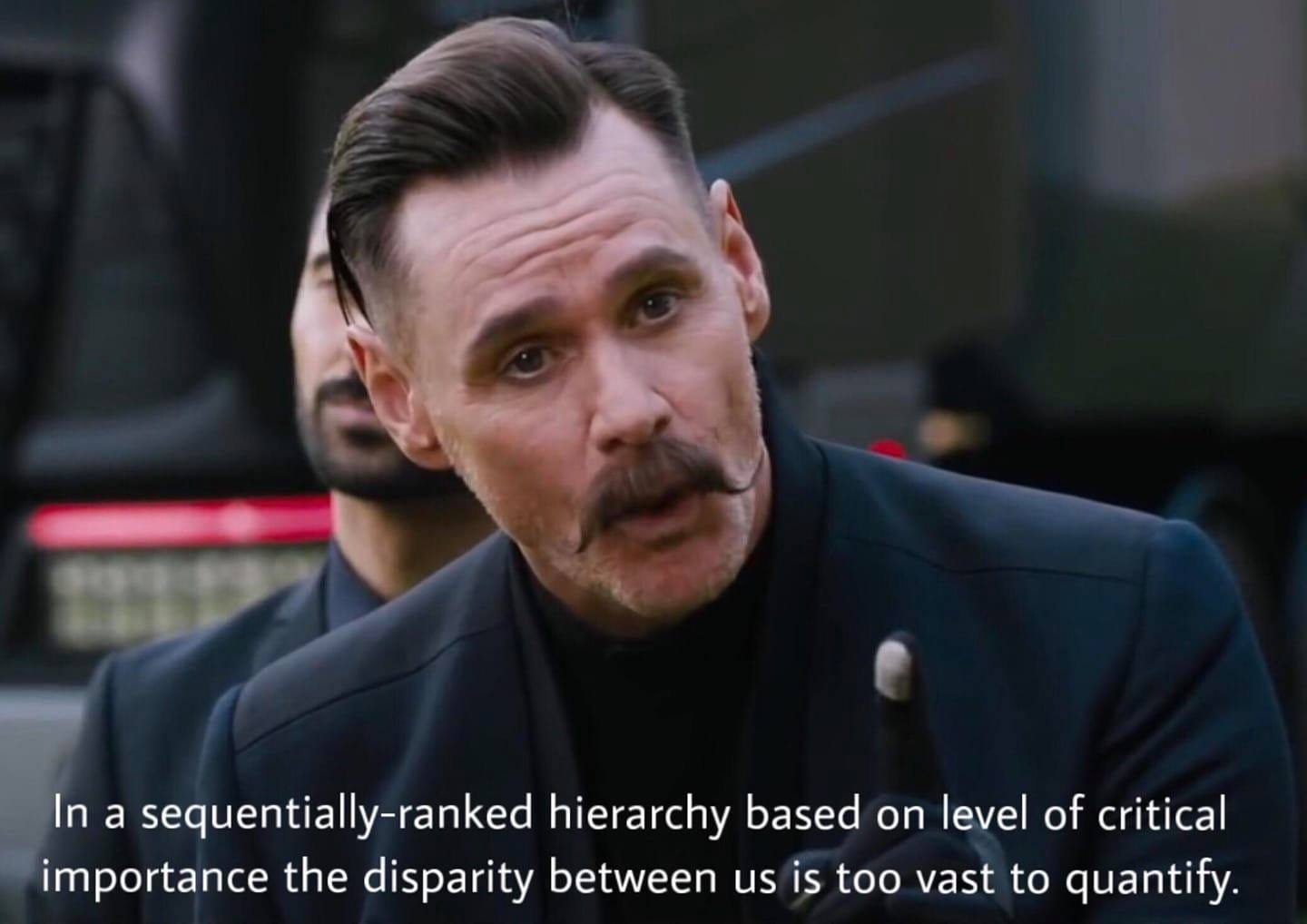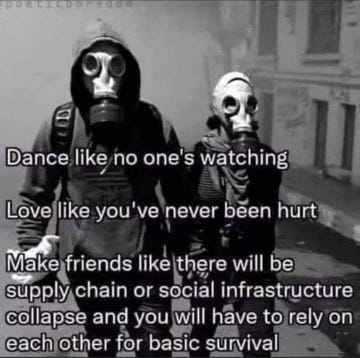My name is Sara Ness.
When I was 20 years old, I catalyzed a worldwide movement of human connection. I have since trained the leaders of Fortune 50 companies such as Google and Dell to be more empathetic and authentic in their work, and held extended internal trainings for Mindvalley, Rebel Wisdom, and the National Oceanic and Atmospheric Administration. My work has been used by CEOs, university professors, climate experts, and AI researchers to connect people during wars, classes, board meetings, and epidemics. I have taught over 10,000 students, directly or indirectly, on every continent except Antartica.
You may have heard of me.
…Okay, you probably haven’t.
But I bet that, after reading the above, you probably trust this article more than you did five minutes ago.
This is the power of status.
Status is one of the most powerful tools in making people trust you, follow you, want to do what you say, buy the things you recommend, do the things you do. It is power: neither good nor evil, but manipulatable to be either.
Status is one form of influence. It is power given by the people, and shown through numbers and name-dropping. Let me re-write my bio to showcase two other forms of power…
My name is Sara Ness.
I am the CEO and Chief Catalyst at Authentic Revolution, the oldest Authentic Relating company still in existence. I am also the Community Guru at the social health nonprofit Seek Healing, and an advisor to the rationalist organization Rethink Wellbeing. I graduated college with triple honors in a Humanities program, focusing in studying intentional living communities, a topic on which I wrote and self-published a 250-page thesis. I am a trained mediator with the International Mediation Campus and a trained Circler with both Circling Europe and The Integral Center. I have written and contributed to several books and am seen as an expert in the fields of experience design, facilitation, and community-building. My work has been featured in The Atlantic and The Houston Chronicle. I have also raised hundreds of thousands of dollars to support my business and the worldwide Authentic Relating movement.
You may (not) have heard of me.
…In the above text, I focused on two other forms of power: authority (what titles, roles, and credentials I hold), and resource (what social and physical capital I hold).
Different forms of power matter more in different areas. In academic and corporate fields, where credentials create power, I’d use the second bio; for personal events and semiprofessional appearances, I’d use the first.
But if I had a disagreement with a colleague - a collision with the justice system - a difficult boss - or the need to raise a lot of money…what forms of power could I use?
I want to write on this topic today because all forms of power and influence fascinate me. I believe that if I understood them - could see them, teach them, and teach defenses against them - my work would help thousands more people.
So,
What is Power?
In my conflict and facilitation classes, we distinguish between three forms of power: Status, Authority, and Resource. These distinctions have been adapted from the work of German economist and historian Max Weber.
They form the underpinnings of all the ways we manipulate, affect, benefit, and influence each other.
Status
is a form of power awarded by others. You have status with the people you have impressed or who trust you, such as Instagram followers and (hopefully) your friends and romantic partners. Status is at play when people attempt to undermine you through gossip or exclusion. You gain it through both the cred you hold with a particular person, and them knowing who else holds you in esteem. Me saying “Google and Dell hired me and 10,000 students trust me” is a way of establishing status.
Status gains us “social capital”. It’s not physical capital, but it can be leveraged just as effectively towards a goal. Think revolutions spread through social media, or supporter-funded Kickstarter campaigns. This is why so many companies and coaches now put weight on establishing “community” around their businesses. They know that people who trust and like them, and have in-group status with each other, will be more likely to support long-term. But we often underestimate how much work it will take to establish such a community: status takes time, and is often hard-won.
Side note - the hard-won nature of status is, I think, the big reason why the SJW and “Me Too” movements have been so scary for a lot of people. Prior to that, you had to do a lot of shit for your status to be destroyed. But with those movements, the report of a single person could lose you all your status; and for community leaders especially, their status-gained social capital was the most important resource they had.
I see status as having two distinctions: Earned and Performed.
Earned Status is gained over time, with a particular person or group, through your actions.
Performed Status is established in the moment through things such as open body posture, eye contact, and slow speech. A group will orient naturally around someone performing status. But it takes earned status to get shit done over time.
Authority
is power held in a role. The power resides in the office, not in the individual. Think presidents, professors, managers, or moms. Whenever your title or position makes other people want to alter their actions, you have authority over the people who fall under that role - but only those people. If you’re Mom, your kids will listen to you, but their friends may not. If you’re the CEO at your job, you may not get much success throwing your weight around at the dog park.
One problem with authority (and any form of power) is that people can get stupid around it. Take doctors, for instance. We tend to trust them implicitly - not because they’ve earned our trust, but because of their role, and whatever institution that backs it. But anyone who has spent time in an emergency room or ICU knows that you have to fight with your doctors to get the correct care. (If you don’t know this, take note! Care teams in hospitals are dispersed, and they don’t always take enough time to get a case history before they start prescribing you things you’re allergic to or making decisions on your behalf.)
Moreover, the semblance of authority can make us just as suggestible as its actual presence. In the book Influence, my bible on effective yet semi-evil uses of power, they cite the example of a company trying to sell a health product. The company at first had doctors on TV saying “I recommend this product”. Then they had the bright idea of switching to a well-known actor, wearing a lab coat and stethoscope, saying “I’m not a doctor, but I play one on TV, and I recommend this product.” Their sales soared - authority and status all in one!
I’ve invented two distinctions for authority: Assigned and Assumed. I am very happy that they alliterate.
Assigned Authority is authority that is given to you by someone else, such as when your boss graduates you from peon to manager.
Assumed Authority is authority you straight-up claim. This one is my favorite. If you feel awkward at a party, you can self-assign yourself the role of “Greeter” and say hi to every person who walks in. If someone is undermining you at work, you can find an role nobody else is holding, such as “Birthday-Rememberer”. You start messaging when it’s someone’s birthday; hold little parties for them; get others to be in touch. Soon you have status, and the person trying to shit-talk you can’t find a foothold to climb.
Resource
is power you hold, and can distribute as you see fit. Money and space are resources. So are intangibles like time, knowledge, experience, and followers. Resources are what you need to manifest your power in a desired direction. You can have great authority, but few resources to get things done (see: presidents in impoverished countries), or great status but few resources (see: the much-loved schoolteacher). In either case, you’ll have trouble pursuing your goals, or “getting ahead” as we call it in America, where we love to give equal access to resources.
The cool thing about resource is that you can leverage it, often more directly than the other forms of power, to gain more power. For instance, say you want more power with a public organization, and you have the resource of time. You start showing up at all their events and being very helpful. Bing: status. Or, you don’t have time, but you do have knowledge. You talk up your credentials to the leader of the group (establishing status) and offer yourself as a consultant (authority). You now have a place to give your knowledge, and gain power with the group that way.
You start to see how these can weave in together. Let me give one more example of the overlaps. I love this story, and have remembered it for 7 years since I heard it! (now you’ll trust the story more because I backed it with my status, hem hem)
The 10/80/10 Rule
Years ago, I was doing a consultation call with a leader in Vancouver who was interested in starting an Authentic Relating community. As I do, I started asking the Vancouver leader what her focus was in the world. She said, “I go into crime-ridden tenements and turn them around.”
I said, “What. How do you do that?”
She said, “I and my team follow something we call the 10-80-10 rule.
“In any group of people, on average, 10% of people are positive influencers - they move people towards outcomes good for the collective. 80% are followers. And 10% are negative influencers.
“The people in authority in the tenement - police, building managers, and such - are usually not having any effect on the culture. The group doesn’t trust them enough. So what we do is, we watch the tenement for a while. We notice who the group is listening to. Who influences their behavior. These are usually not the people with authority. We try to pick out which of those people are positive influencers.
“Then, we take those people out to coffee, we ask them what they need, and we give them those resources.”
“That’s it?” I asked.
“Yes, that’s it. Usually the things they need are rather small - clothes, money to help people pay rent. But the people on the inside know what they need to make change. We don’t. If we come in with our authority, they are never going to trust us. And once the top 10% have more power to make change, the 80% follow them. Then, eventually, the bottom 10% do too.”
Aka: by putting resources in the hands of people with status, this organization had figured out how to turn an authority-shy hotbed of crime into a positive place for the people inside.

I have a homework challenge for you.
As part of our Art of Difficult Conversations class, we teach a section on power - how to see it, how to use it, how to defend against it.
We give our students an exercise to map out a conflict in their own life, and see where there might be un-accessed forms of Status, Resource, or Authority that they could bring to bear.
I would love for you to make your own map. And, ideally, share it with me. I am still a neophyte in my research on conflict, and I want more examples of how others see and use these tools!
Here’s the Power Mapping exercise: http://tinyurl.com/thepowermap
Your loving thought-dom,
Sara Ness




